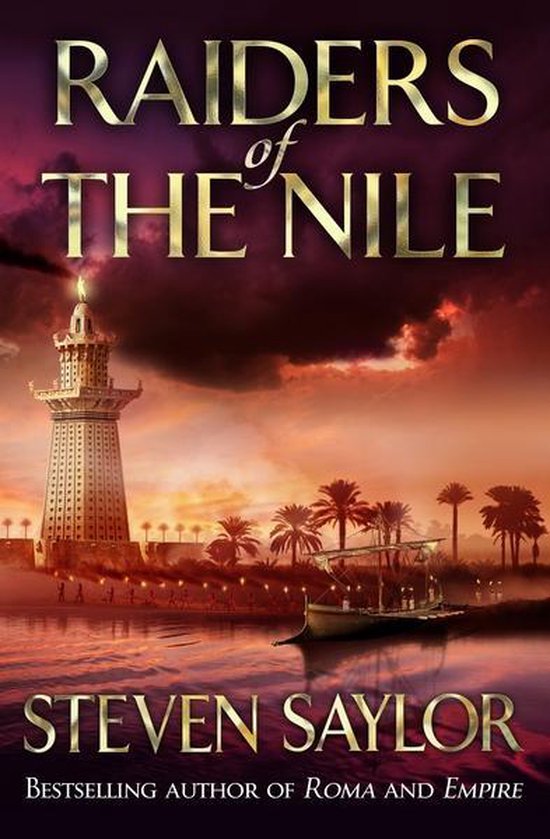Raiders of the nile

Op voorraad. Voor 23:59 uur besteld, morgen in huis
From the bestselling author of Empire and Roma comes the new adventure featuring Gordianus the Finder
As cataclysmic war rages, Gordianus must solve a mystery closer to his heart.
In 88 B.C. it seems that all the world is on the verge of catastrophic war, from Rome and Greece to Egypt, where the young Gordianus—born and raised a Roman citizen—is living in the city of Alexandria. When not making ends meet by plying his trade of solving mysteries, he spends time with his slave Bethesda, waiting for the world to regain its sanity.
But on the day Gordianus turns twenty-two, Bethesda is kidnapped by brigands who mistake her for a rich man’s mistress. If Gordianus is to save Bethesda he must find the kidnappers before they realize their mistake. Using all the skills he learned from his father, Gordianus must venture into the dangerous Nile Delta, track down the bandits, and somehow free the woman he loves.
Praise for Steven Saylor:
‘The Saylor hallmarks are… meticulous recreation of Rome’s grimy bustling streets… and a brilliantly drawn cast of minor characters’
The Sunday Times
‘A compelling storyteller, with a striking talent for historical reconstruction’
Times Literary Supplement
’Saylor’s scholarship is breathtaking and his writing enthrals’ Ruth Rendell
Gordianus is now twenty-two years old and living in Alexandria with Bethesda, scraping by in modest and haphazard fashion. But then Bethesda is kidnapped by mistake. With few resources available to him, Gordianus has to find the people who kidnapped her and get her back - before they realise they have the wrong woman and dispose of her for good.
A raid on the golden tomb of Alexander the Great, a semi-shady troupe of travelling performers, highwaymen, amorous innkeepers, the politics of the pharaohs, smugglers, camels and an adventure up the Nile all combine to make this a rescue mission neither Gordianus - or Bethesda - will ever forget.
Praise for Steven Saylor:
'The Saylor hallmarks are meticulous recreation of Rome's grimy bustling streets and a brilliantly drawn cast of minor characters.' The Sunday Times
'A compelling storyteller, with a striking talent for historical reconstruction.' Times Literary Supplement
- Bekijk alle specificaties

Prijs:


Taal: en
Bindwijze: Paperback
Oorspronkelijke releasedatum: 02 april 2015
Aantal pagina's: 352
Illustraties: Nee
Hoofdauteur: Steven Saylor
Hoofduitgeverij: Constable
Co Uitgever(s): Constable & Robinson
Product breedte: 164 mm
Product hoogte: 23 mm
Product lengte: 201 mm
Studieboek: Nee
Verpakking breedte: 126 mm
Verpakking hoogte: 27 mm
Verpakking lengte: 202 mm
Verpakkingsgewicht: 251 g
EAN: 9781472101976